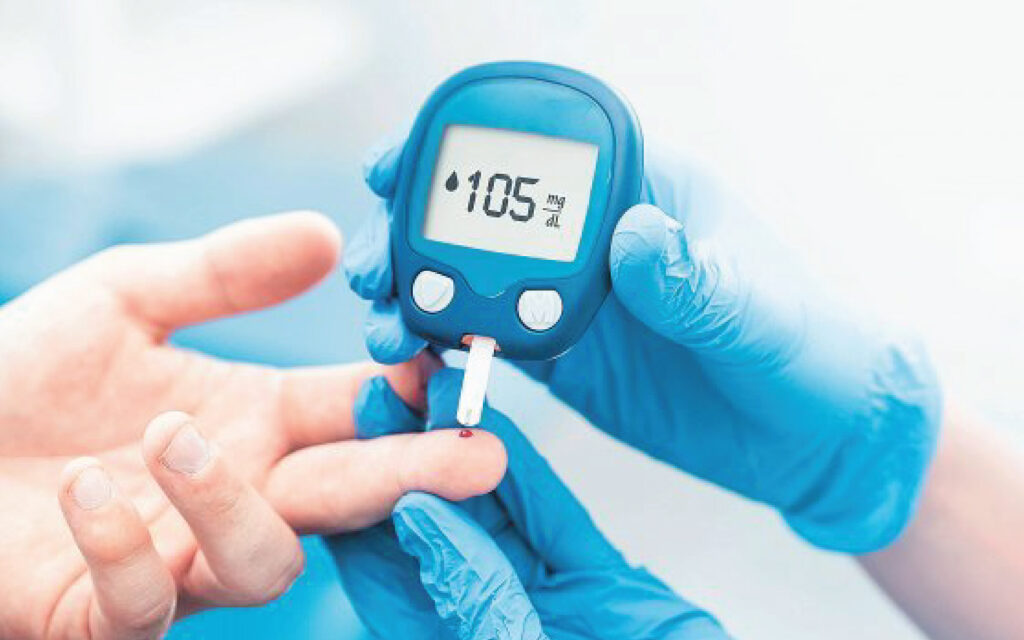Health knowledge
Signs Indicating Diabetes
Diabetes, also known as diabetes mellitus, is a common group of metabolic disorders. It is caused by the disturbance of insulin metabolism in the body, leading to high blood sugar levels.
The cause of diabetes is usually due to an unstable insulin level in the body (which may be deficient or even excessive). If diabetes is controlled and blood sugar levels are regularly monitored, blood sugar will be within safe levels, similar to that of a healthy person.
Early detection, timely treatment, and continuous management can help reduce the risk of dangerous complications such as heart attacks, strokes, retinal diseases leading to blindness, kidney diseases causing renal failure, peripheral vascular diseases leading to limb amputations, and other serious complications.
Here are the early signs that may indicate diabetes:
Excessive Thirst and Drinking More Water
The first symptom often noticed when someone has diabetes is excessive thirst. However, it should be distinguished from thirst caused by dehydration, heavy physical activity, or hot weather, which can also increase thirs.
Frequent Urination and Increased Urine Output

A common symptom of diabetes is frequent urination. If you notice an increased frequency of urination, along with a larger volume of urine that is not accompanied by pain or discomfort, it could be an early sign of diabetes.
Frequent Fatigue and Weakness
This is a symptom that many people do not associate with diabetes. However, in the early stages of the disease, glucose circulates in the body but cannot be converted into energy due to a lack of insulin. Additionally, much of the energy is lost as glucose is excreted in urine, leading to excessive fatigue and weakness. Therefore, if you experience excessive thirst and frequent fatigue, it’s important to see a doctor as you might have diabetes.
Increased Appetite with Weight Loss
Weight loss is a symptom that may go unnoticed because many people think it is due to poor eating habits or dieting. However, if you are eating normally or even more than usual, without any change in your physical activity, and still lose weight, you should consider the possibility of diabetes or another serious illness.
In diabetes, high blood sugar levels cannot be converted into energy, so the body uses fat as an alternative energy source, leading to sudden weight loss. People with diabetes may eat and drink a lot, urinate frequently, but still lose weight rapidly.
Reduced Vision
With the widespread use of electronic devices like TVs, computers, and phones, reduced vision is often dismissed. However, in diabetes, vision becomes blurry, and images may gradually become unclear.
Therefore, if you notice a decline in your vision along with symptoms like thirst and weight loss, you should have an eye exam and check your blood sugar levels to determine if diabetes is affecting the retinal blood vessels.

Inflammation
In people with diabetes, the immune system is weakened, making the body more susceptible to infections. The gums are often one of the first areas affected, leading to frequent gum inflammation and other oral health problems.
Appearance of Dark Spots on the Skin
Diabetes can also affect the skin. People with diabetes often notice the appearance of dark spots on their skin, especially in areas with folds or wrinkles.
Slow Healing of Wounds
Since diabetes is a metabolic disorder, the immune system is compromised, and the blood vessels are damaged, leading to poor circulation and delayed wound healing. In some cases, wounds may become infected or even necrotic.
In summary: Diabetes is a disease that can affect people of all ages, and it is becoming increasingly common in younger populations. It is a condition that progresses gradually over time. If not managed properly, it can lead to serious acute and chronic complications. Therefore, if you notice any suspicious symptoms, it is important to visit a healthcare facility for diagnosis and treatment.

